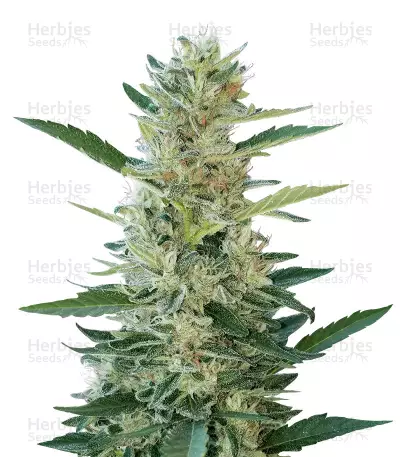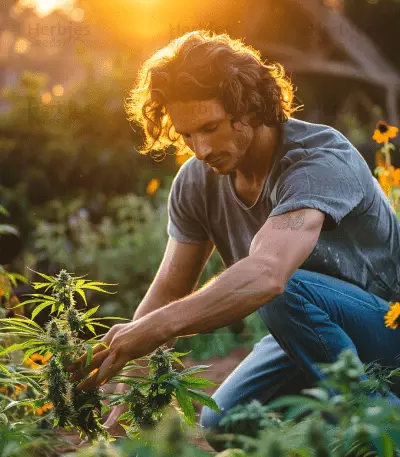 99.01% germination rate
99.01% germination rate  1912 sales
1912 sales THC
-
![Durban Poison strain]()
-
![Durban Poison strain seeds]()
-
![Durban Poison strain]()
-
![Durban Poison strain]()
-
![Durban Poison strain]()
-
![Durban Poison strain]() + 1
+ 1
Durban Poison Feminized Seeds (Dutch Passion)
Description
Durban Poison Strain Info
Durban Poison is one of the most renowned cannabis strains in the world. Originating from the bustling city of Durban, South Africa, this pure, old-school Sativa is beloved by both recreational users and medical patients alike. Its reputation as a perfect strain stems from its energizing and uplifting effects that leave users feeling motivated and creative. One of the reasons Durban Poison is so popular is because it is relatively easy to grow, making it a favorite among both novice and experienced growers – an excellent offer for cultivators who want to grow a pure Sativa outdoors, but whose environmental conditions may be far from ideal. Whether you’re a cannabis connoisseur or a beginner, Durban Poison offers a one-of-a-kind experience that is cherished by many and manages to pack serious knockout power and a lot of flavor to boot.
Genetics
Durban Poison is a pure Sativa landrace that made its journey from South Africa to Holland during the 1970s. Once there, dedicated growers undertook the challenge of cultivating and modifying this strain to thrive even in the cooler climates of Northern Europe. Beyond its individual merits, this landrace also holds a claim to fame in cannabis lineage – it's a crucial genetic contributor to the highly acclaimed Girl Scout Cookies strain. This connection underscores Durban Poison's importance and prominent role in shaping contemporary cannabis genetics.
Flowering Time
Durban Poison's growth cycle is as notable as its other characteristics. Its flowering period varies, typically ranging between 8–9 weeks for some phenotypes, but it can extend to 12–16 weeks for others, particularly when grown outdoors. This flexibility in flowering time allows growers to adapt their cultivation practices based on their specific needs and environmental conditions. Come October, outdoor cultivators can usually expect to see their plants reach full maturity, boasting long, resin-coated buds ready for harvest. This somewhat extended flowering window speaks to the strain's adaptability and its ability to produce quality results across various growing scenarios.
Yields
Durban Poison stands out not only in flavor and effects but also in its production capabilities. For indoor cultivators, this strain has been shown to yield impressively, producing upward of 500 g/m² (1.6+oz/ft²). However, it's in the great outdoors where Durban Poison truly showcases its potential. Even when faced with colder climates, this robust plant produces a generous harvest; growers can expect to harvest more than 300 g (10+oz) of dense, resin-rich buds per plant. Moreover, this strain is known for its rich production of trichomes. Such yields reflect the strain's resilience and adaptability, making Durban Poison a preferred choice for growers seeking both quality and quantity from their crops.
Effects
Primarily driven by its robust Sativa lineage, Durban Poison from Dutch Passion is famed for delivering a deeply invigorating and energizing experience. Users often find themselves immersed in a wave of stimulation, making this strain an outstanding choice for daytime indulgence. Its effects veer away from the typical sedating and lethargic feelings that some strains might induce. Instead, it uplifts the mind and spirit, offering clarity and focus. Notably, this strain also exhibits therapeutic qualities, particularly in addressing anxiety issues. Whether you're seeking a spark of creativity, a boost in motivation, or simply a means to alleviate daily stressors, Durban Poison stands out as a go-to choice for many cannabis enthusiasts.
THC Level
Typically, strains tailored for colder climates might not be the frontrunners in terms of THC potency. However, Durban Poison is an outlier in this respect. Clocking in at a moderate 14% THC, this strain still manages to offer a substantial punch. Its THC content is perfectly balanced to provide users with a noticeable but not overpowering effect. This makes Durban Poison an ideal choice for those seeking a consistent and reliable experience without the extreme intensities of higher THC strains.
Smell and Taste
Durban Poison possesses a unique terpene profile that sets it apart in the vast world of cannabis strains. As it matures, especially during the flowering stage, this strain doesn't exude the intense, sometimes overwhelming odors that many other strains are known for. Instead, its aroma is refined and understated, hinting at its sophisticated lineage.
When consumed, the complexities of Durban Poison's terpenes come to the fore. Users are treated to a distinctive spicy flavor profile, punctuated by nuanced hints of anise, licorice, and clove. These subtle undertones not only enrich its taste but also create a memorable smoking or vaping experience. This blend of flavors and scents embodies a delicate balance, making Durban Poison a favorite among those who appreciate depth and sophistication in their cannabis strains.
Grow Tips
In essence, Durban Poison is a relatively low-maintenance strain that, with the right care and attention, can flourish and yield generously. Whether you're a novice or a seasoned grower, following these tips can assist in realizing this strain's full potential:
- Its plants are known to grow tall, often reaching heights above 3m (6.5-10 ft). Their structure embodies the classic Sativa look with long flowers and slender leaves.
- While growing indoors, we recommend growing techniques such as topping or fimming, LST, supercropping, and scrogging.
- Given their height and branching, these plants might require support, especially in windy conditions, to ensure that they can maintain their structure without damage.
- The buds have a more open, airy structure. This trait is particularly beneficial, as it increases the plant's resistance to mold – a common challenge for many cannabis growers.
- Durban Poison has a moderate appetite. While it doesn't demand excessive nutrients, maintaining a balanced feeding schedule will ensure healthy growth.
- While Durban Poison can handle various conditions due to its resilience, growers should still keep an eye out for standard cannabis pests and potential diseases.
Durban Poison Seeds
Though stemming from a naturally occurring African variety, Durban Poison is for sale not as regular seeds but as feminized ones. This makes her perfect for guerilla growing, as you can be sure that no males will grow in your secret patch. For cultivators, whether seasoned or just starting out, Durban Poison's feminized seeds offer a blend of reliability and quality, ensuring a fruitful and rewarding growing experience. You can buy Durban Poison cannabis seeds at Herbies and enjoy the experience of a pure landrace Sativa strain for a great deal, especially for such a high-quality strain.
Durban Poison Feminized Seeds: Frequently Asked Questions
Are you intrigued by this awesome strain but still have some questions? Check out this section to have them cleared up!
Is Durban Poison Easy to Grow?
The cultivation difficulty of Durban Poison is considered easy to moderate. The strain thrives when cultivated outdoors in hot weather with ample sunlight. You can grow it in different climates, and indoor growing is also possible, but growers should be aware that harvests will not be as abundant as they could be under optimal outdoor conditions.
What Does Durban Poison Taste Like?
Durban Poison offers a remarkable range of flavors such as spicy, sugary, creamy, and vanilla. Smoking it, you may experience flavors reminiscent of tea, combining hints of fennel, anise, licorice, clove, orange zest, and lemon, all harmoniously mixed in a luscious creamy fusion that is unrivaled.
Is Durban Poison an Indica or Sativa?
It's a pure Sativa landrace that is claimed to have originated in Durban, South Africa.
Is Durban Poison a Strong Strain?
With its high THC level, this weed is indeed very strong and delivers a powerful effect. The THC content of Durban Poison is 14%, which makes it quite a potent choice for both recreational and medicinal purposes.
What Makes Durban Poison So Strong?
Aside from its pure Sativa genotype, Durban Poison typically contains around 14% THC or even more, and at the same time, quite small amounts of CBD. The combination of such potent THC levels and the absence of any Indica genetics makes Durban Poison a rather intense psychedelic strain.
What Is Durban Poison Good For?
This weed offers powerful uplifting effects and can help with anxiety, stress, depression, chronic pain, and even nausea. However, it can't be used for the treatment of seizures. Aside from its medical applications, it also has an overall energetic and cerebral effect and stimulates the appetite.
What Is Another Name for Durban Poison?
Durban Poison was named after the South African port city that it originated in, but thanks to its potent effects, in the cannaworld, it's sometimes called “coffee” or even “espresso.”
Where Can I Buy Durban Poison Seeds?
You can buy these seeds on Herbies Seeds' website. This well-established store has been in business for 20 years, offers a wide variety of seeds, and provides numerous advantages for its customers, such as discreet shipping to anywhere in the world, complimentary seeds with every purchase, knowledgeable customer support, and additional perks.
 Shipping: from 2 days
Shipping: from 2 days - PersonalSmok3s3 May 2023
- sammy27 June 2021
- James161218 May 2021
- haha14 November 2019
- Woody30 October 2019
- mr. Z26 October 2019
- Noname2 October 2019
- Tobias19 September 2019
- Jesus12 June 2019
- Herbivore9 June 2019
 USA Express
USA Express 






























